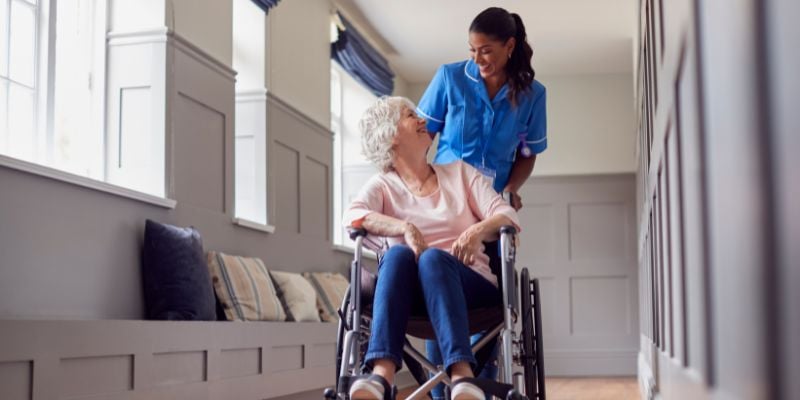
What is a Personal Carer?
A Personal Carer (sometimes known as a Personal Assistant, Care Assistant, or Personal Care Assistant) provides care to people at home.
Personal Assistants are employed directly by the individual they support. People can receive contributions towards paying a Care Assistant through the local council. The amount of money a person can receive towards costs depends on individual needs.
Around 70,000 people in England employ a PA, either through direct payments or personal health budget.
What do Personal Carers do?
Personal Carers provide care at home to help people live happy, independent lives from the comfort of their own homes. Care Assistant’s working hours vary from part-time to full-time. Exact working hours depend on the needs of the person they support.
The day-to-day tasks of a Personal Carer include:
- Preparing meals
- Assisting with medication
- Shopping
- Driving
- Providing support for family carers when they need respite
- Personal care, including washing, dressing, and using the toilet
 What kind of settings do Personal Assistants work in?
What kind of settings do Personal Assistants work in?
Personal Assistants typically provide care at home or in the community. The setting will depend on the individual who is being supported.
In some cases, when an individual is admitted to a hospital, their Care Assistant will continue supporting them. PAs will work with ward and clinical staff to ensure a person’s needs and preferences are met.
Who do Personal Carers support?
A Personal Carer can support a range of people, including, a family member, adults, children, or people with more complex needs.
PAs are employed directly by an individual and not through an agency or third party.
What are the benefits of Personal Carers?
Employing a PA can be really beneficial to the individual. As clients are the employer, they have more control over who cares for them and what tasks they do. Care packages can be designed to meet individual needs.
Typically, people will employ someone they know to care for them which often makes recruitment much more straightforward. People can also be signposted to PAs through the local authority.
Here are a few of the main benefits of Care Assistants:
- Clients have more choice and control over the care they receive
- Care Assistants save the economy billions of pounds every year
- Care is flexible and tailor-made to support the client’s individual needs
- Receiving care at home allows people to remain at home while receiving bespoke
- Support that meets their individual needs
- Personal Assistants relieve pressure on other health and social care services by supporting people at home
How to become a Personal Assistant
There are some basic skills required to be a Care Assistant. They include:
- Strong communication skills
- Good literacy and numeracy skills
- Excellent listening skills
You also must be reliable, responsible, respectful, and always treat people with dignity.
Although you don’t need any formal training to become a Personal Assistant, previous experience would be an advantage. It is up to the person who employs a PA to decide if they are the right fit.
Personal Carer jobs
Personal Assistants can be employed by a family member or friend, but sometimes people will advertise for a Personal Assistant.
Care Assistant vacancies can be found on job boards such as Indeed, and Total Jobs.
How are Personal Carers paid?
Personal Carers are employed directly by the individual they support, which means they are paid directly by them too. PAs receive minimum wage, but the exact pay is determined by the individual/ employer.
The current minimum wage is:
For workers aged 23 or over: £9.50 per hour
For workers aged 21 to 22: £9.18 per hour
For workers aged 18 to 20: £6.83
For workers aged 16 to 17: £4.62
You can find more information on PAs on the Skills for Care website here.



